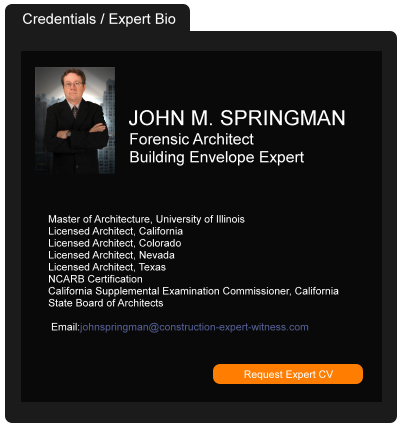Emotional Distress Damages Not Distinct from “Annoyance and Discomfort” Damages in Case Arising from 2007 California Wildfires
February 16, 2017 —
Kirsten Lee Price & Lawrence S. Zucker II - Haight Brown & Bonesteel LLPIn Hensley v. San Diego Gas & Elec. Co., (No. D070259, filed 1/31/17), the California Court of Appeal for the Fourth Appellate District held that emotional distress damages are available on claims for trespass and nuisance as part of “annoyance and discomfort” damages.
In Hensley, plaintiffs sustained fire damage to their home and property during the 2007 California wildfires. The Hensleys were forced to evacuate as the fires advanced. Although their home was not completely destroyed, it sustained significant damage and they were not able to return home permanently for nearly two months. Thereafter, the Hensleys filed suit against San Diego Gas and Electric Company (“SDG&E”) asserting causes of action for trespass and nuisance, among others. Mr. Hensley, who had suffered from Crohn’s disease since 1991, further claimed that as a result of the stress from the fire, he experienced a substantial increase in his symptoms and his treating physician opined that “beyond a measure of reasonable medical certainty... the stress created by the 2007 San Diego fires caused an increase of [Mr. Hensley’s] disease activity, necessitating frequent visits, numerous therapies, and at least two surgeries since the incident.” SDGE moved, in limine, to exclude evidence of Mr. Hensley’s asserted emotional distress damages arguing he was not legally entitled to recover them under theories of trespass and nuisance. The trial court agreed and excluded all evidence of such damages.
Reprinted courtesy of
Kirsten Lee Price, Haight Brown & Bonesteel LLP and
Lawrence S. Zucker II, Haight Brown & Bonesteel LLP
Ms. Price may be contacted at kprice@hbblaw.com
Mr. Zucker may be contacted at lzucker@hbblaw.com
Read the court decisionRead the full story...Reprinted courtesy of
Recording “Un-Neighborly” Documents
April 03, 2019 —
Bob Henry - Snell & Wilmer Real Estate Litigation BlogIn September 2018, in Baumgartner v. Timmins, 245 Ariz. 334, 429 P.3d 567, the Arizona Court of Appeals provided further clarification on what constitutes an “encumbrance” on a property for purposes of Arizona’s statutory scheme prohibiting the recording of “false documents.” The statute, A.R.S. § 33-420, prohibits the recording of documents that a person knows to be forged, are groundless, or that contain material misstatements (or false claims). A person who claims an “interest in, or a lien or encumbrance against” real property who records such documents can be held liable for $5,000 or treble the actual damages caused by the recording (whichever is greater), A.R.S. § 33-420(A), and perhaps even be found guilty of a class 1 misdemeanor, A.R.S. § 33-420(E).
At issue in Baumgartner were neighbors fighting about CC&Rs—a typical neighborhood fight. In 2015, some of the neighbors filed suit against the Timminses for violating the CC&Rs. The Timminses did not contest the lawsuit, resulting in a default judgment. In what the Court of Appeals characterized as a lawsuit filed by the Timminses “in apparent response to the [first] lawsuit and resulting default judgment,” the Timminses created, signed, and recorded affidavits contending that the Plaintiffs in the original lawsuit were themselves “in violation of several provisions of the CC&Rs.” The Plaintiffs then filed suit again against the Timminses, this time contending that the Timminses had violated A.R.S. § 33-420 by recording the affidavits because the affidavits, the Plaintiffs contended, created encumbrances on their properties. The Apache County Superior Court agreed, and issued a final judgment nullifying the recorded documents and awarding the Timminses damages, along with their attorneys’ fees and costs.
Read the court decisionRead the full story...Reprinted courtesy of
Bob Henry, Snell & WilmerMr. Henry may be contacted at
bhenry@swlaw.com
Harborside Condo Construction Defect Settlement Moves Forward
July 09, 2014 —
Beverley BevenFlorez-CDJ STAFFThe Harborside Condominium Owners Association in Bremerton, Washington, “has an agreement to pursue $2.8 million in settlement costs for construction defects,” according to the Kitsap Peninsula Business Journal. Back in March of 2013, the association “filed a list of defects in its lawsuit against Kitsap County Consolidated Housing Authority [Housing Kitsap]” including water issues, drywall and foundation cracks, uneven cabinets, leaking showers and pipes, as well as other issues.
Housing Kitsap agreed that the association “has the right to pursue a settlement of $2.8 million from the authority’s contractors and insurance companies.” Marlyn Hawkins, the association’s attorney, stated that they have already received a payment for $840,000 from the insurance company “and will be negotiating or filing suit for the rest of the $2.8 million.”
Read the court decisionRead the full story...Reprinted courtesy of
UCF Sues Architects and Contractors Over Stadium Construction Defects
October 19, 2017 —
David Suggs – Bert L. Howe & Associates, Inc.The University of Central Florida (UCF) filed suit over alleged construction defects of their 45,000-seat arena including the claim of “premature wear of the steel,” spokesman Chad Binette stated, according to the Orlando Sentinel.
Bid documents suggest that rust may be an issue. UCF recently sought contractors for “Stadium Emergency Rust Repairs.” The Orlando Sentinel reported that the university stated “the word ‘emergency’ reflects deadlines for the football season instead of safety concerns.” Other documents also claimed ongoing rust remediation.
The UCF stadium had earned the nickname “Bounce House” from the arena “subtly swaying as fans jumped together to the song ‘Kernkraft 400’ by Zombie Nation. UCF spent hundreds of thousands of dollars in 2008 stiffening the underpinnings of the stadium by bolting additional steel to about 160 beams,” according to the Orlando Sentinel. Officials claim that the stadium was never unsafe.
Read the court decisionRead the full story...Reprinted courtesy of
Washington Court Limits Lien Rights of Construction Managers
August 17, 2011 —
Douglas Reiser, Builders Council BlogA newly filed, yet unpublished, court opinion opines that a construction manager cannot file a construction lien in Washington state. So, how far reaching is this opinion?
�In the case of Blue Diamond Group Inc. v. KB Seattle 1, Inc., et al, a New York construction manager filed a lien against the Westfield Southcenter Mall in Tukwila, Washington. The lien was filed after the owner of a coffee stand failed to pay Blue Diamond for consulting services used in the construction of a kiosk.
�Blue Diamond served as the owner’s agent, assisting with managing subcontractors, vendors and other tasks. The manager’s tasks also included paying invoices, managing deliveries, setting schedules and other site managerial tasks. Blue Diamond was not registered as a contractor under Washington’s RCW 18.27.
Read the full story…
�Read the court’s decision…
�Reprinted courtesy of Douglas Reiser of Reiser Legal LLC. Mr. Reiser can be contacted at info@reiserlegal.com
Read the court decisionRead the full story...Reprinted courtesy of
Recovering Attorney’s Fees and Treble Damages in Washington DC Condominium Construction Defect Cases
April 03, 2023 —
Nicholas D. Cowie - Cowie Law GroupDC Condominium Association’s Can Recover Attorney’s Fees, Litigation Costs and Treble Damages in Construction Defect Cases Involving Misrepresentation
The District of Columbia Consumer Protection Procedures Act (“CPPA”) § 28-3905(k)(1)(A) creates a private legal claim (a/k/a “cause of action”) which can be asserted by a condominium unit owners association (“condominium association”) on behalf of two or more of its unit owner members who are misled by a condominium developer regarding the condition or quality of a newly constructed or newly converted condominium. Under the DC CPPA, a successful claimant is entitled to recover “treble damages” (i.e., three times the amount of damages it proves), plus recovery of “reasonable attorney’s fees” incurred in prosecuting the construction defect claim and “[a]ny other relief the court determines proper,” including non-attorney fee litigation expenses. DC CPPA § 28-3905(k)(2)(A), (B) and (F).
The CPPA Creates the Legal Claim that Allows a Condominium Associations to Recover Attorney’s Fees, Litigation Costs and Treble Damages
The DC CPPA is a consumer-oriented statute designed to protect Washington DC consumers misled in connection with the purchase of consumer “real estate,” including transactions involving the purchase of a condominium unit and interest in the condominium common elements. Typically, these cases involve the sale of a newly constructed or newly converted condominium, which, contrary to developer representations, contains latent construction defects.
Read the court decisionRead the full story...Reprinted courtesy of
Nicholas D. Cowie, Cowie Law GroupMr. Cowie may be contacted at
ndc@cowielawgroup.com
Insurers Can Sue One Another for Defense Costs on Equitable Indemnity and Equitable Contribution Basis
March 21, 2022 —
Garret Murai - California Construction Law BlogSince I don’t do insurance defense work, fights between insurers isn’t something I have to deal with. It’s good sport nonetheless. In the next case, Travelers v. Navigators Specialty Insurance Company, Case No. D078852 (October 15, 2021), three of the biggies – Travelers, Navigators and Mt. Hawley – got into it over indemnity.
The Travelers Case
General contractor TF McGukin, Inc. was involved in a construction defect lawsuit with respect to a condominium project. TFM entered into subcontracts with several subcontractors including F&F Steel and Stairway, Inc and Calvac Paving which required the subcontractor to defend and indemnify TFM against any claims arising out of the subcontractor’s work. The subcontracts also required the subcontractors to name TFM as an additional insured.
Read the court decisionRead the full story...Reprinted courtesy of
Garret Murai, Nomos LLPMr. Murai may be contacted at
gmurai@nomosllp.com
State Audit Questions College Construction Spending in LA
August 17, 2011 —
CDJ STAFFA state audit of the Los Angeles Community College District found many problems with their construction spending. Their report, as described in the Los Angeles Times, found construction money spent for other purposes, such as promotional photography and public relation tours, $28.3 million spent on projects that were later cancelled, and oversight committees that provided no oversight.
�Earlier this year, the LA Times ran a series of articles detailing problems with the Los Angles Community College District’s construction program. The LA Times reported that the State Controller’s audit reached many of the same conclusions.
�The Community College District disputed the findings.
Read the full story…
Read the court decisionRead the full story...Reprinted courtesy of


































































